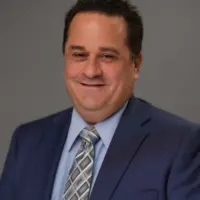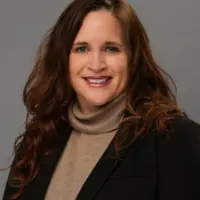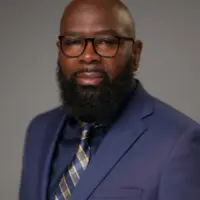I was a patient at the Alexander's Childrens Center in Charlotte, and I was seriously misdiagnosed. Later on in life, it was found I had ADHD, while there is was given antidepressants instead if the correct medication and therapy. It wasn't until my 20's that I got a correct ...
About Alexander Childrens Center
Alexander Children’s Center, located in Charlotte, North Carolina, is a unique facility focused on supporting kids and early adolescents with serious behavioral health and substance use needs. You’ll find everything from residential care to outpatient services and early intervention. Their team is here to help you and your child feel seen, supported and safe in a structured healing environment.
We can’t help but notice Alexander Children’s Center’s ideal location. After visiting the campus, you and your child can take a walk along the trails at McAlpine Creek Park or you can unwind at the beautiful local dog park. Matthews’ downtown area is just minutes away and offers small shops and quiet places to sit with a snack. These nearby spots are great because they can give you and your child a chance to reflect, reset or just enjoy something peaceful after a difficult day.
Substance Use and Canine Assisted Therapy
If your child is experimenting with or is dependent on substances like alcohol or cannabis, they can receive age appropriate counseling and care coordination. Their Bark and Heal canine assisted therapy program stands out as something truly special, pairing children with rescue dogs for hands on emotional skill building. We like that this approach helps children develop trust, responsibility and a sense of calm through real connection.
Family Support and Residential Care
Alexander Children’s Center has residential programs like the Transition House that can help your child stabilize and gain life skills in a supportive, secure setting. Free family lodging is available on campus, so you can stay close without added stress. We like how the center stays with your child even after discharge, offering 12 to 15 months of follow up care through their intensive program.
Insurance and Financial Support
Services are Medicaid certified, and most commercial insurance plans are accepted for outpatient care. If you’re unsure about coverage, the admissions staff will help you navigate options, including sliding-scale and grant support. We admire their efforts to remove financial barriers so that families like yours can access care.
Facility Overview
Latest Reviews
Rehab Score
Location
Other Forms of Payment
Medicaid is a state based program that helps lower-income individuals and families pay for healthcare. Medicaid covers addiction treatment so those enrolled can use their coverage to pay for rehab. When a program accepts Medicaid the client often pays very little or nothing out of their own pocket.
Private insurance refers to any kind of healthcare coverage that isn't from the state or federal government. This includes individual and family plans offered by an employer or purchased from the Insurance Marketplace. Every plan will have different requirements and out of pocket costs so be sure to get the full details before you start treatment.
Self-pay involves paying for treatment out of your own pocket. You can use savings or credit, get a personal loan, or receive help from family and friends to fund your treatment. If you don't have insurance or your insurance plan doesn't cover a specific program, self-pay can help ensure you still get the care you need.
Addiction Treatments
Levels of Care
Residential treatment programs are those that offer housing and meals in addition to substance abuse treatment. Rehab facilities that offer residential treatment allow patients to focus solely on recovery, in an environment totally separate from their lives. Some rehab centers specialize in short-term residential treatment (a few days to a week or two), while others solely provide treatment on a long-term basis (several weeks to months). Some offer both, and tailor treatment to the patient's individual requirements.
Treatments
Mental health rehabs focus on helping individuals recover from mental illnesses like bipolar disorder, clinical depression, anxiety disorders, schizophrenia, and more. Mental health professionals at these facilities are trained to understand and treat mental health issues, both in individual and group settings.
Clinical Services
Cognitive Behavioral Therapy (CBT) is a therapy modality that focuses on the relationship between one's thoughts, feelings, and behaviors. It is used to establish and allow for healthy responses to thoughts and feelings (instead of unhealthy responses, like using drugs or alcohol). CBT has been proven effective for recovering addicts of all kinds, and is used to strengthen a patient's own self-awareness and ability to self-regulate. CBT allows individuals to monitor their own emotional state, become more adept at communicating with others, and manage stress without needing to engage in substance abuse.
Whether a marriage or other committed relationship, an intimate partnership is one of the most important aspects of a person's life. Drug and alcohol addiction affects both members of a couple in deep and meaningful ways, as does rehab and recovery. Couples therapy and other couples-focused treatment programs are significant parts of exploring triggers of addiction, as well as learning how to build healthy patterns to support ongoing sobriety.
Dialectical Behavior Therapy (DBT) is a modified form of Cognitive Behavioral Therapy (CBT), a treatment designed to help people understand and ultimately affect the relationship between their thoughts, feelings, and behaviors. DBT is often used for individuals who struggle with self-harm behaviors, such as self-mutilation (cutting) and suicidal thoughts, urges, or attempts. It has been proven clinically effective for those who struggle with out-of-control emotions and mental health illnesses like Borderline Personality Disorder.
Experiential therapy is a form of therapy in which clients are encouraged to surface and work through subconscious issues by engaging in real-time experiences. Experiential therapy departs from traditional talk therapy by involving the body, and having clients engage in activities, movements, and physical and emotional expression. This can involve role-play or using props (which can include other people). Experiential therapy can help people process trauma, memories, and emotion quickly, deeply, and in a lasting fashion, leading to substantial and impactful healing.
Research clearly demonstrates that recovery is far more successful and sustainable when loved ones like family members participate in rehab and substance abuse treatment. Genetic factors may be at play when it comes to drug and alcohol addiction, as well as mental health issues. Family dynamics often play a critical role in addiction triggers, and if properly educated, family members can be a strong source of support when it comes to rehabilitation.
Group therapy is any therapeutic work that happens in a group (not one-on-one). There are a number of different group therapy modalities, including support groups, experiential therapy, psycho-education, and more. Group therapy involves treatment as well as processing interaction between group members.
In individual therapy, a patient meets one-on-one with a trained psychologist or counselor. Therapy is a pivotal part of effective substance abuse treatment, as it often covers root causes of addiction, including challenges faced by the patient in their social, family, and work/school life.
Trauma therapy addresses traumatic incidents from a client's past that are likely affecting their present-day experience. Trauma is often one of the primary triggers and potential causes of addiction, and can stem from child sexual abuse, domestic violence, having a parent with a mental illness, losing one or both parents at a young age, teenage or adult sexual assault, or any number of other factors. The purpose of trauma therapy is to allow a patient to process trauma and move through and past it, with the help of trained and compassionate mental health professionals.
Staff

Craig Bass, MSW, ACSW
CEO

Kelli Carson, LCMHC-S
COO

Manuel Gomez, MBA
CFO

Dr. Van Catterall, PhD
Chief Clinical Officer

Carolyn Spence
CIO

Sandra Pizarro, SPHR, SHRM-SCP, MBA
Chief People & Culture Officer

Stacia Jackson, MBA
CMO

Leonard Shinhoster
VP of Residential Services
Contact Information
6220 thermal Road
Suite C
Charlotte, NC 28211
